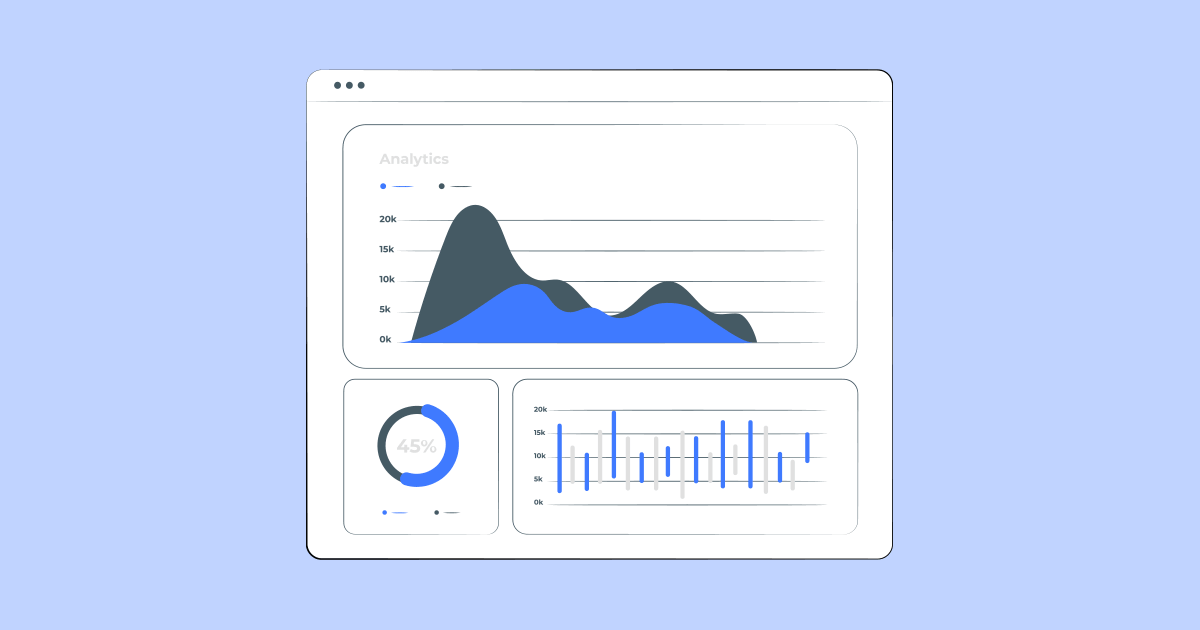Residential Proxies
Allowlisted 200M+ IPs from real ISP. Managed/obtained proxies via dashboard.

Proxies Services
Residential Proxies
Allowlisted 200M+ IPs from real ISP. Managed/obtained proxies via dashboard.
Residential (Socks5) Proxies
Over 200 million real IPs in 190+ locations,
Unlimited Residential Proxies
Unlimited use of IP and Traffic, AI Intelligent Rotating Residential Proxies
Static Residential proxies
Long-lasting dedicated proxy, non-rotating residential proxy
Dedicated Datacenter Proxies
Use stable, fast, and furious 700K+ datacenter IPs worldwide.
Mobile Proxies
Dive into a 10M+ ethically-sourced mobile lP pool with 160+ locations and 700+ ASNs.
Scrapers
Collection of public structured data from all websites
Proxies
Residential Proxies
Allowlisted 200M+ IPs from real ISP. Managed/obtained proxies via dashboard.
Starts from
$0.6/ GB
Residential (Socks5) Proxies
Over 200 million real IPs in 190+ locations,
Starts from
$0.03/ IP
Unlimited Residential Proxies
Unlimited use of IP and Traffic, AI Intelligent Rotating Residential Proxies
Starts from
$1816/ MONTH
Rotating ISP Proxies
ABCProxy's Rotating ISP Proxies guarantee long session time.
Starts from
$0.4/ GB
Static Residential proxies
Long-lasting dedicated proxy, non-rotating residential proxy
Starts from
$4.5/MONTH
Dedicated Datacenter Proxies
Use stable, fast, and furious 700K+ datacenter IPs worldwide.
Starts from
$4.5/MONTH
Mobile Proxies
Allowlisted 200M+ IPs from real ISP. Managed/obtained proxies via dashboard.
Starts from
$1.2/ GB
Scrapers
Web Unblocker
Simulate real user behavior to over-come anti-bot detection
Starts from
$1.2/GB
Serp API
Get real-time search engine data With SERP API
Starts from
$0.3/1K results
Scraping Browser
Scale scraping browsers with built-inunblocking and hosting
Starts from
$2.5/GB
Documentation
All features, parameters, and integration details, backed by code samples in every coding language.
TOOLS
Resources
Addons
ABCProxy Extension for Chrome
Free Chrome proxy manager extension that works with any proxy provider.
ABCProxy Extension for Firefox
Free Firefox proxy manager extension that works with any proxy provider.
Proxy Manager
Manage all proxies using APM interface
Proxy Checker
Free online proxy checker analyzing health, type, and country.
Proxies
AI Developmen
Acquire large-scale multimodal web data for machine learning
Sales & E-commerce
Collect pricing data on every product acrossthe web to get and maintain a competitive advantage
Threat Intelligence
Get real-time data and access multiple geo-locations around the world.
Copyright Infringement Monitoring
Find and gather all the evidence to stop copyright infringements.
Social Media for Marketing
Dominate your industry space on social media with smarter campaigns, anticipate the next big trends
Travel Fare Aggregation
Get real-time data and access multiple geo-locations around the world.
By Use Case
English
繁體中文
Русский
Indonesia
Português
Español
بالعربية

In the vast landscape of the internet, communication between devices relies on a unique set of protocols to facilitate connectivity. Among these protocols, IPv4 (Internet Protocol version 4) and IPv6 (Internet Protocol version 6) stand as pillars of the digital infrastructure, enabling the transmission of data across networks. But what sets IPv4 and IPv6 apart, and why is the transition from IPv4 to IPv6 becoming increasingly important? Let's delve into the differences between IPv4 and IPv6 to unravel the complexities of internet communication.
IPv4, introduced in the early days of the internet, laid the groundwork for modern networking by providing a standardized method for identifying and routing data packets across networks. Under the IPv4 protocol, each device connected to the internet is assigned a unique 32-bit numerical address, commonly represented in dotted-decimal notation (e.g., 192.168.1.1). While IPv4 served as the backbone of internet communication for decades, its limited address space has become a significant bottleneck in the face of exponential growth in internet-connected devices.
Enter IPv6, the successor to IPv4 designed to address the limitations of its predecessor and accommodate the expanding ecosystem of internet-enabled devices. Unlike IPv4, which uses 32-bit addresses, IPv6 employs a 128-bit address format, allowing for a virtually limitless number of unique addresses. This expanded address space not only ensures an ample supply of addresses for current and future devices but also introduces improvements in network efficiency and security.
As the depletion of IPv4 addresses accelerates and the demand for internet-connected devices continues to rise, the transition to IPv6 has become imperative to sustain the growth and scalability of the internet. While IPv4 will remain in use for the foreseeable future, the adoption of IPv6 is essential to future-proofing network infrastructure and ensuring seamless connectivity in the digital age. By understanding the differences between IPv4 and IPv6 and embracing the evolution of internet protocols, we can pave the way for a more robust, resilient, and interconnected digital ecosystem.
Featured Posts
Popular Products
Residential Proxies
Allowlisted 200M+ IPs from real ISP. Managed/obtained proxies via dashboard.
Residential (Socks5) Proxies
Over 200 million real IPs in 190+ locations,
Unlimited Residential Proxies
Use stable, fast, and furious 700K+ datacenter IPs worldwide.
Rotating ISP Proxies
ABCProxy's Rotating ISP Proxies guarantee long session time.
Residential (Socks5) Proxies
Long-lasting dedicated proxy, non-rotating residential proxy
Dedicated Datacenter Proxies
Use stable, fast, and furious 700K+ datacenter IPs worldwide.
Web Unblocker
View content as a real user with the help of ABC proxy's dynamic fingerprinting technology.
Related articles

Exploring the Evolution: Understanding the Difference Between IPv4 and IPv6
Title: Understanding the Key Differences Between IPv4 and IPv6In the world of networking, IP addresses play a crucial role in identifying and communicating with devices connected to the internet. The transition from IPv4 to IPv6 has been a significant development in this field, driven by the need for more IP addresses due to the exponential growth of internet-connected devices. Let's delve into the key differences between IPv4 and IPv6 to understand their impact on the network infrastructure.One of the most notable differences between IPv4 and IPv6 is the address space. IPv4 uses 32-bit addresses, allowing for approximately 4.3 billion unique addresses. On the other hand, IPv6 uses 128-bit addresses, providing an almost infinite number of unique addresses (approximately 340 undecillion). This vast address space of IPv6 enables the seamless connection of an ever-expanding array of devices without the risk of address exhaustion.Another significant difference is the header structure. IPv4

What's a Proxy and How Does It Work: Explained
If you've ever wondered about the term "proxy" and what it means, you're in the right place! A proxy, or proxy server, is an intermediary between your device and the internet. It acts as a gateway, forwarding your web requests and receiving responses on your behalf. So, why would someone use a proxy? Well, there are several reasons. Firstly, proxies can enhance privacy by hiding your IP address. This means that websites you visit won't be able to directly track your location or online activity. Additionally, proxies can provide anonymity by masking your identity, making it harder for others to trace your online actions back to you. Another benefit of using a proxy is to bypass restrictions imposed by networks or websites. For example, some organizations block access to certain websites or social media platforms. By using a proxy, you can potentially bypass these restrictions and access blocked content. Proxies are also commonly used in web scraping, a technique used to gather data from

Определение прокси: что такое прокси-серверы и как они работают
Прокси - это промежуточный сервер, который выполняет посредническую роль между клиентом и сервером. Он обеспечивает анонимность и безопасность при подключении к Интернету. Прокси-сервер может перенаправлять запросы клиента на удаленные серверы, скрывая истинный IP-адрес пользователя и предоставляя доступ к заблокированным ресурсам. Кроме того, прокси улучшает скорость и производительность подключения, кэшируя данные и уменьшая нагрузку на основной сервер. Все это делает прокси незаменимым инструментом для защиты конфиденциальности и обхода ограничений в Интернете.